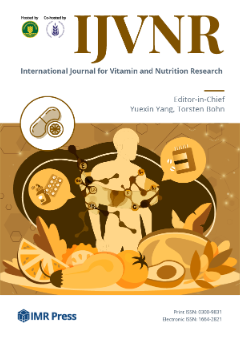International Journal for Vitamin and Nutrition Research (IJVNR) is published by IMR Press from Volume 95 Issue 1 (2025). Previous articles were published by another publisher under a hybrid publishing model, and they are hosted by IMR Press on imrpress.com as a courtesy and upon agreement with Hogrefe.
The role of vitamin D in metabolic and reproductive disturbances of polycystic ovary syndrome: A narrative mini-review
Vitamin D is a secosteroid hormone that plays a pivotal role in several metabolic and reproductive pathways in humans. Increasing evidence supports the role of vitamin D deficiency in metabolic disturbances and infertility in women with polycystic ovary syndrome (PCOS). Indeed, supplementation with vitamin D seems to have a beneficial role on insulin resistance (IR) and endometrial receptivity. On the other hand, exceedingly high levels of vitamin D appear to play a detrimental role on oocytes development and embryo quality. In the current review, we summarize the available evidence about the topic, aiming to suggest the best supplementation strategy in women with PCOS or, more generally, in those with metabolic disturbances and infertility. Based on the retrieved data, vitamin D seems to have a beneficial role on IR, insulin sensitivity and endometrial receptivity, but high levels and incorrect timing of administration seem to have a detrimental role on oocytes development and embryo quality. Therefore, we encourage a low dose supplementation (400–800 IU/day) particularly in vitamin D deficient women that present metabolic disturbances like PCOS. As far as the reproductive health, we advise vitamin D supplementation in selected populations, only during specific moments of the ovarian cycle, to support the luteal phase. However, ambiguities about dosage and timing of the supplementation still emerge from the clinical studies published to date and further studies are required.

